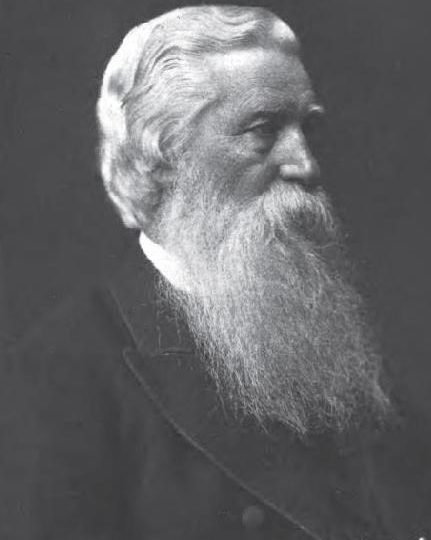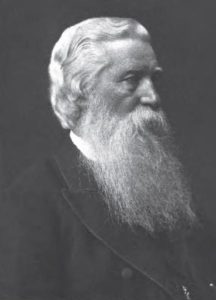Does Belief in God’s Sovereignty Kill Missionary Zeal?

Guest article by Paul Schlehlein, missionary in South Africa
John Paton’s wife and child died before the boxes were unpacked. 
He and his family had been on the tiny South Pacific island of Tanna for less than three months, beaming with hope that the cannibals would some day be converted. But while God’s hammer may break the heathen heart upon the anvil of his Word, the sparks often strike the ones we love most.
Paton’s wife was in her early twenties—his only child but six weeks.
In the wake of this unimaginable sorrow, nearby missionaries assembled on the island to pass a resolution. Was it a pact for greater protection? Was it a pledge to greater vigilance over physical health and comfort? In part it was. Most notably, however, it was a commitment to a greater focus on evangelism.
They wrote:
“Regard this striking dispensation of God’s providence as a loud call…to be more…diligent in pressing the concerns of eternity on the minds of others.”[1]
Of what fabric is such dogged evangelism made? From whence comes such concern for the lost and such determination to win them? It came from their unshakable truth in the rule of God in all things, including the seeking, softening, and saving of sinners.
Does God’s sovereignty over salvation kill missionary zeal? For this consecrated crew of South Sea missionaries, the thought was unthinkable.
John Paton was a deep believer in the doctrines of grace, and he is just one soldier in the long line of godly missionaries who have assailed the foreign field armed with the resolve to “endure everything for the sake of the elect” (2 Tim 2:10).
What Does the Bible Say?
Scripture teaches that God’s sovereign grace fuels the fervor of missions. Since the book of Acts is the most evangelistic and missions-minded book in the Bible, we would expect to find this truth throughout. And in fact, we do. Here are three examples.
Acts 18:10 – “I have many in this city who are my people.”
After a rough go of it in Corinth, Paul may have been having thoughts of moving on. But Jesus came to him in a dream, imploring him to “go on speaking” the gospel (v. 9). The Lord then gives a three-part motivation for evangelism: his presence (“I am with you”), his protection (“no one will harm you”), and his promise (“I have many in this city who are my people”).
The promise, of course, is that the people in Corinth are his sheep and they will be saved. They have been chosen. By virtue of this, even though they have yet to believe, Jesus already considers them his.
But does this really fuel evangelism? It did for Paul. He stayed in Corinth for another year and a half. Corinth was the first city where Paul settled for an extensive period of missionary service. He didn’t say, “Since God has his people. I guess I’m not needed here.” Rather than being a deterrent to missions and evangelism, election is the incentive that propelled Paul when times got tough.
Acts 16:14 – “The Lord opened her heart to pay attention to what was said by Paul.”
God is always the initiator in salvation. He is the founder of our faith (Heb 12:2). The engine of God’s grace gave Lydia the willingness to learn (“the Lord opened her heart”), which in turn pulled the caboose of Paul’s evangelism (“attention to what was said by Paul”).
That which has sustained me through years of church planting in rural Africa has been the reality that God will save his people. How often on those dusty paths has pain of rejection tempted me to quit? How many times has the impenetrable human heart forced my hands up in despair?
But—I remember—it is God that opens hearts.
Missionary friend, let them cackle at your accent in their tongue. Let them shun and scoff and spit and stew, but this will never negate the promise that God will unlock the minds of sinners just as he did with Lydia.
God’s sovereignty does not kill missionary vigor. It assures victory, promises triumph, and guarantees success.
Acts 13:48 – “As many as were appointed to eternal life believed.”
Verse 48 is the life-raft of sovereign grace upon the sprawling ocean of evangelism. In the previous verse, the Gentiles bring salvation to the ends of the earth (v. 47). In the following verse, the gospel is spreading through the entire region (v. 49). Right in the middle is what makes it all work.
Luke reminds us that Christians are elected to faith, not because of faith. Those who believe do so because God determined it (Eph. 1:4). But God’s inscrutable plans do not negate man’s responsibility. Thus, elsewhere, Paul could guarantee the hands on deck, “there will be no loss of life” (Acts 27:22), yet balance it with the promise “unless these men stay in the ship, you cannot be saved” (v. 31).
God saves through the means of evangelism.
Conclusion
Paton’s belief in a sovereign God, coupled with his resolve to win the natives to Christ no matter the cost, no matter the sacrifice, no matter the loss, and no matter the penalty, is in the end what brought a whole island to faith.
The sweet synthesis of divine election and tenacious evangelism kindled the wonder of the natives.
“We slew or drove them all away! We plundered their houses and robbed them. Had we been so treated, nothing would have made us return. But they came back…to tell us of their Jehovah God and of His Son Jesus. If their God makes them do all that, we may well worship Him too.”[2]
[1] John Gibson Paton, Missionary Patriarch: The True Story of John G. Paton, Evangelist for Jesus Christ Among the South Sea Cannibals (San Antonio, TX: Vision Forum, 2002), 82.
[2] Ibid., 310.
Editor’s Note: For further study, see J.I. Packer’s Evangelism and the Sovereignty of God (IVP, 2012).
Want More Content Like This?
We will deliver Reaching & Teaching articles and podcast episodes automatically to your inbox. It's a great way to stay on top of the latest news and resources for international missions and pastoral training.
